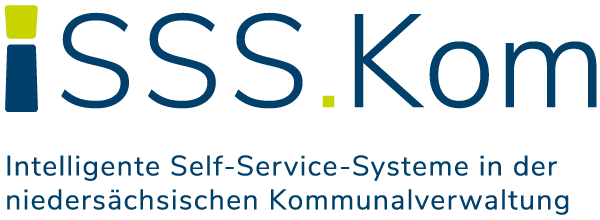Sponsoring Institution

Niedersächsisches Ministerium für
Wissenschaft und Kultur
Duration: 10/2020-12/2023
Project Management
Project Team
Prof. Dr. Markus Tepe
University of Oldenburg
Prof. Dr. Susanne Boll
University of Oldenburg
Project staff
M.Sc. Saja Aljuneidi
OFFIS - Institute for Information Technology
Smart Self-Service Systems in the Municipal Administration of Lower Saxony (ISSS.Kom)
The causal effect of service failure and self-declaration on citizen satisfaction and technology acceptance.
This research project investigates the determinants of acceptance of Intelligent Self-Service Systems (ISSS) in the context of public services. Empirically, we focus on passport applications as an example of a standardized administrative process. What is the effect on citizen satisfaction and technology acceptance when such a standardized administrative process is not performed by a human bureaucrat but by an ISSS that recognizes human speech, facial expressions, and gestures and responds to this visually and with voice output? What is the effect of failures in service delivery? Is the explanation of such failures given by an ISSS as acceptable as that given by a public servant?
Self-service terminals are already established in the private sector (e.g., self-service checkouts in the retail sector); for the public sector, they are currently in the developed and tested. In the civil registration system in particular, self-service terminals enable applicants to independently record biometric data for the creation of ID documents, thus reducing waiting times for applicants and staff deployment by public administrations. In the case of intelligent self-service terminals, this involves the development of responsive systems that have the ability to analyze human speech, facial expressions and gestures, to recognize emotional states and react to these in an appropriate audiovisual manner (affective computing, cognitive computing). While this type of speech recognition and intelligent (responsive) functioning cannot yet be 100% implemented with today's technology, the market potential of ISSS in the provision of standardized, person-centric services is undisputed.
In contrast to the private sector, public administration is not a place where free market participants meet, but a place where citizens and public servants with distinct rights and duties, come into contact with each other. These interactions between citizens and bureaucrats are embedded in formal and informal norms, values and expectations. How citizens experience administrative action is hereby closely linked to the legitimacy of administrative action and their willingness to co-produce state services, and thus concerns the core of the democratic administrative state.
In order to answer the research questions, the research project develops an analytical framework that connects administrative science research on service failure in the public sector with human-technology interaction research.




